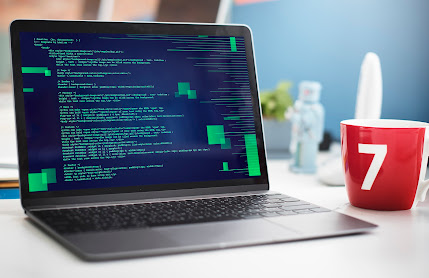Variable in Programming
What we mean a Variable in
Programming :
A designated storage place is frequently required in programming in order to store data or values. We can save the data in our software and retrieve it later by using variables. Programming variables, including their types, declarations, initialization, naming conventions, etc., will be covered in this article.
In programming, a variable is a designated storage place that contains data or a value. Because these values are subject to change while a program is running, they are given the label "variable." For computer programs to store and manipulate data, variables are necessary. The fundamental unit of a program is a variable, which can be utilized in expressions to replace the value it stores.
Declaration of Variable in Programming:
In programming, a variable's type and name must be specified before it may be used in the program. This is known as parameter declaration. Different Programming languages may differ slightly in syntax, but the basic idea is always remains the same.
Let me show an example for a variable declaration in our C++ Programming Languages as:
#include <iostream>
using namespace std;
int main() {
// Syntax if a variable_name;
int user_id;
double cost_price;
char grade;
return 0;
}
Types of Variable In Programming:
1. Global Variables:
In programming languages, global variables are those variables available across the whole codebase and declared outside of any function or block. To put it another way, global variables are accessible from any section of the program, including blocks, functions, and modules.
Let me show an example for a global variable declaration in our C++ Programming Languages as:
#include <iostream>
using namespace std;
int glvariable = 5;
void globalFnc() {
cout << glvariable << endl;
}
int main() {
cout << glvariable << endl;
globalFnc();
return 0;
}
Output of program : 5
2. Local Variable:
In programming, local variables are declared inside a certain function, block, or scope and are only available within that constrained environment. Put more simply, local variables cannot be immediately accessed outside of the block or function in which they are declared.
Let me show an example for a local variable declaration in our C++ Programming Languages as:
#include <iostream>
using namespace std;
int main() {
int localvariable = 13;
cout << localvariable<< endl;
return 0;
}
Output of program: 13
Follow Language Conventions:
Use the naming conventions specified by the programming language you're using. For example, Java commonly employs camel case (myVariableName), whereas Python frequently uses underscores (my_variable_name).
Avoid Reserved terms: Variable names should not contain reserved terms or programming language keywords.
Avoid Abbreviations:
Use full words instead of abbreviations, unless generally recognized or for standard terminology (e.g., maximum, minimum).
Scope of a Variable
The scope of a variable in programming refers to the area of the program where it can be accessed or changed. It specifies the visibility and lifetime of a variable within a program. There are usually two forms of variable scope:
Local Scope:
- A variable declared inside a function, block, or loop has a local scope.
- It can only be accessed within the specific function, block, or loop where it is declared.
- Its lifetime is limited to the duration of the function, block, or loop.
Global Variable:
Variables declared outside of a function or block have global scope.It can be accessible from any location in the program, including within functions.
Its lifespan spans throughout the entire program.
To give the stated variables values, we utilize the = symbol. The value to be stored will be on the right, while the variable name and type will be on the left.
As an illustration, int score = 55;
Additionally, you can use user input techniques to obtain the value that will be saved in the variable.
For instance, in the C++ language,
Enter your number: 55.
User entered a number which is 55.
The programming language has five distinct sorts of variables. They are as follows:
Constant Variables
Data that doesn't need to be altered during the program is stored in constant variables. In this kind of variable, the data cannot be changed.
Global Variables
Declared outside of a function, global variables are accessible from anywhere in the program until it is executed. While Python uses the "global" keyword to make a variable global, Ruby uses the $ symbol before the variable name.
Only within the class may these variables be accessed. It is necessary to declare class variables at the class level. Because each class variable can only exist in one copy per class, they are also known as static variables.
Instance Variables
Although they are specified outside of a method, instance variables are part of the class.
Local Variables
These variables, which are declared in methods, classes, and instances, are the most often used. You can access these variables from within a block or section of code.
Q01. Regarding variable names, which of the following is accurate?
A Variable's name cannot begin with a number.
B. Any length of variable is possible
Respond Choice A.
Q02: What is an external variable?
A. Another name for a global variable
B. All functions can access it.
C. Makes a statement
A. int number;
Q04. Which of the data types has a changeable size?
A. int
Last Points:




Keep it up....
ReplyDelete